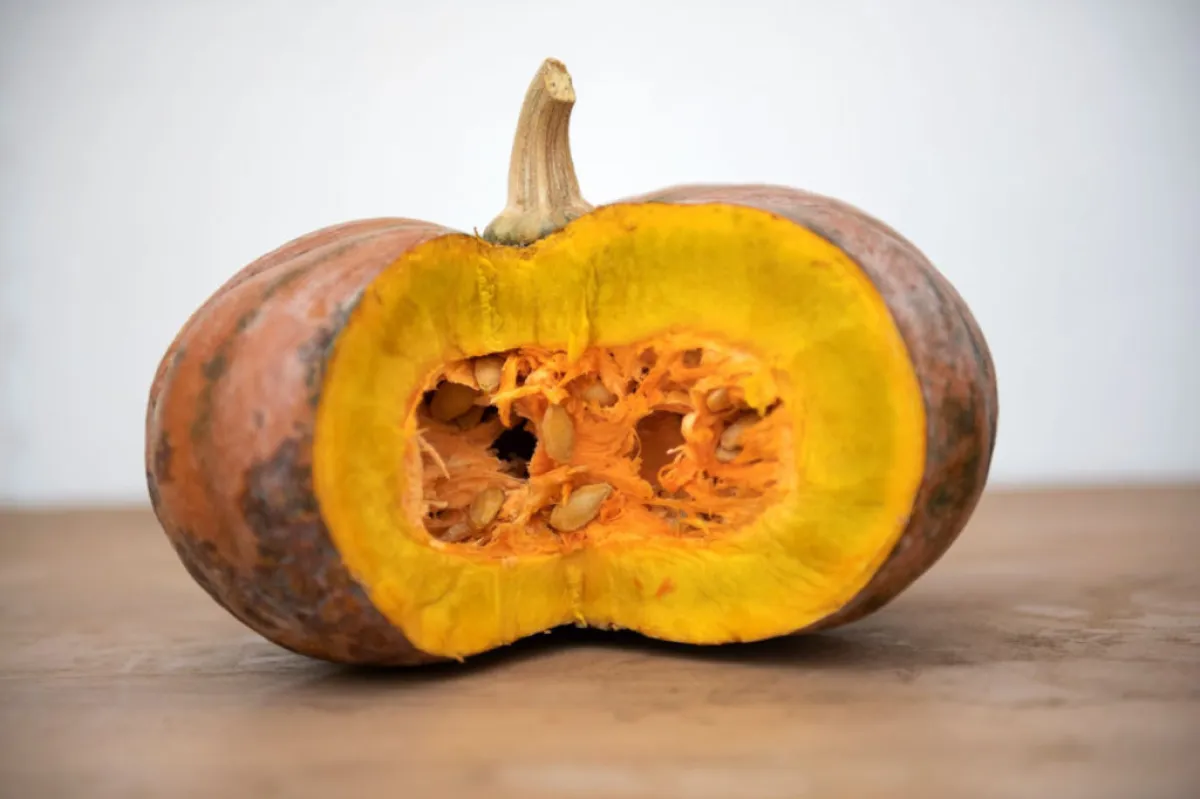
"Khai Nao" is the local name for a pumpkin variety indigenous to Nan Province, which has been cultivated for more than three generations. The term 'Khai Nao (which means rotten egg)' comes from the drab green color, resembling a rotten egg' of the pumpkin flesh. When cooked, it offers a unique texture and taste.
In 2016, the people of Nan came together to form the "Nan Organic Agriculture Community Enterprise Network," comprising 39 community enterprises. They collectively cultivated "organic pumpkins" as an economic plant representing Nan province, in collaboration with Central Group Company Limited, the World Wildlife Fund - Thailand (WWF Thailand), Rajamangala University of Technology Lanna, National Science and Technology Development Agency (NSTDA), and other partner agencies. The expertise in pumpkin cultivation that the people of Nan possess was capitalized.
The most suitable variety for this upgrade is 'Khai Nao', being a unique local variety favored by the people of Nan and also recognized for its taste by the Central Group Company Limited, which agreed to distribute it in supermarkets. The company also coordinated with research agencies to enhance the quality of the Khai Nao pumpkin product.
Pumpkin is a naturally cross-bred plant. To maintain consistent production according to the breed, farmers need to understand and control the production process from the seed. Therefore, the team collaborated on research and development of technology for cultivating the Khai Nao pumpkin variety. The research on the characteristics of the Khai Nao pumpkin is not only crucial for commercial seed production but also beneficial for "registering the protection of indigenous plant varieties specific to a locality," safeguarding the rights to improve the variety, study, research, produce, sell, and export outside the Kingdom. This will result in exclusive rights to enhance the development process of production and products, creating additional value and becoming an asset for the people of Nan province only. The implications of this exclusivity lead to income generation and sustainable conservation of local varieties.
The solid collaboration of all parties has resulted in the sustainable conservation and enhancement of local biodiversity's value. It has enabled Nan farmers to shift from chemical to organic and sustainable agriculture, serving as a significant example of employing the BCG economy model to strengthen grassroots agricultural practices, creating an Impact Value Chain. This could serve as a model for uplifting agricultural practices in other regions of Thailand.
Data updated on May 11, 2023
Source: National Science and Technology Development Agency (NSTDA)
Tel. +66 2564 7000